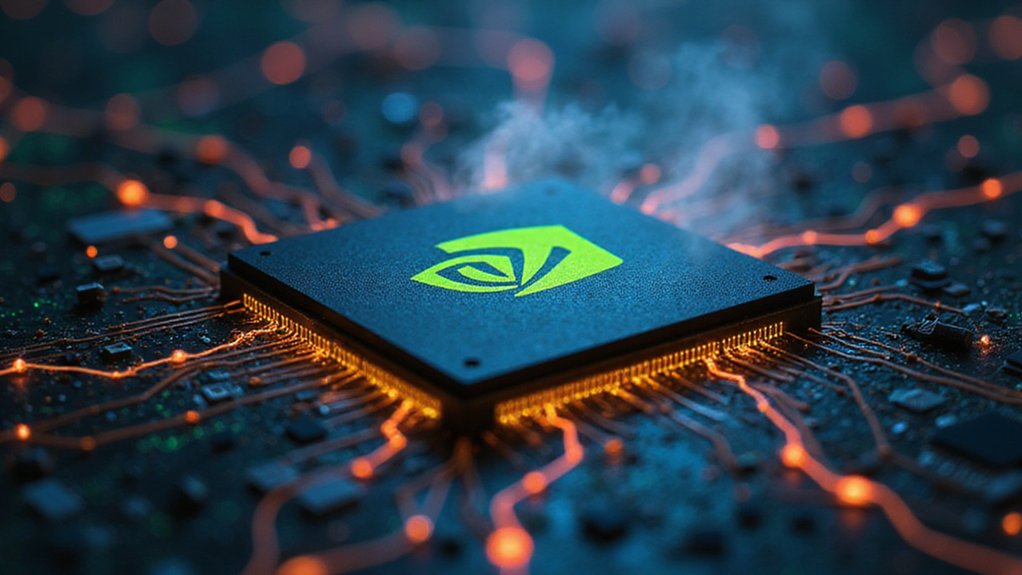U.S. lawmakers are pushing several bills to prevent China from accessing advanced AI chips. The Stop Stealing our Chips Act and others aim to create whistleblower programs and strengthen export controls. New restrictions target Nvidia chips specifically, after reports showed Chinese companies have been evading current regulations through re-exports and cloud services. Officials call China’s chip smuggling a “grave national security concern” as both nations compete for AI dominance. The battle for computing power continues to intensify.
As tensions between the United States and China continue to rise, lawmakers have introduced several bills aimed at preventing American AI chips from reaching Chinese hands. The most recent proposal, the Stop Stealing our Chips Act, was introduced by Senators Rounds and Warner on April 10, 2025. This legislation would create a whistleblower program at the Bureau of Industry and Security to help catch those who illegally export chips.
The Commerce Department recently imposed new export controls on certain Nvidia chips to China in April 2025. These controls build on restrictions started by the Biden administration and tightened in January 2025 to address problems with TSMC’s production. These are the first such export control measures under the Trump administration. A House Select Committee report revealed that DeepSeek, a Chinese AI company, has been utilizing export-controlled Nvidia chips for AI model development, raising serious compliance concerns.
Building on Biden-era policies, the Commerce Department’s April 2025 restrictions mark the Trump administration’s first move against Chinese chip access.
Despite existing rules, China has found ways to get around them. Restricted Nvidia GPUs are being re-exported to China from other countries, and over a million China-specific accelerators that avoid current regulations have been legally shipped. The U.S. government’s delayed actions have allowed AI chips with optimized performance to continue flowing to China.
Chinese companies like ByteDance have accessed GPUs through various cloud providers outside China.
Other proposed legislation includes the FIGHT China Act, which would give the Secretary power to require notification of and stop certain AI deals with Chinese entities. The Decoupling America’s Artificial Intelligence Capabilities from China Act would ban AI technology imports and exports between the two countries.
Additionally, the China Technology Transfer Control Act would let the President control exports of important technology to China.
The U.S. government believes AI progress will determine whether American power continues or is handed to China. Senator Rounds has called China’s smuggling efforts a “grave national security concern.”
The idea is that access to computing power for building AI models will decide who leads the global order.
Some experts wonder if it’s already too late to keep China from catching up to U.S. AI technology. Nvidia has until April 30, 2025, to respond to the latest regulations.
References
- https://www.rand.org/pubs/commentary/2025/05/chinas-ai-models-are-closing-the-gap-but-americas-real.html
- https://www.mintz.com/insights-center/viewpoints/54731/2025-04-24-house-select-committee-publishes-report-deepseek
- https://www.rounds.senate.gov/newsroom/press-releases/rounds-introduces-legislation-to-prevent-smuggling-of-american-ai-chips-into-china
- https://semianalysis.com/2025/01/15/2025-ai-diffusion-export-controls-microsoft-regulatory-capture-oracle-tears/
- https://foreignpolicy.com/2025/05/05/china-artificial-intellligence-ai-technology-us-chip-restrictions-nvidia/









